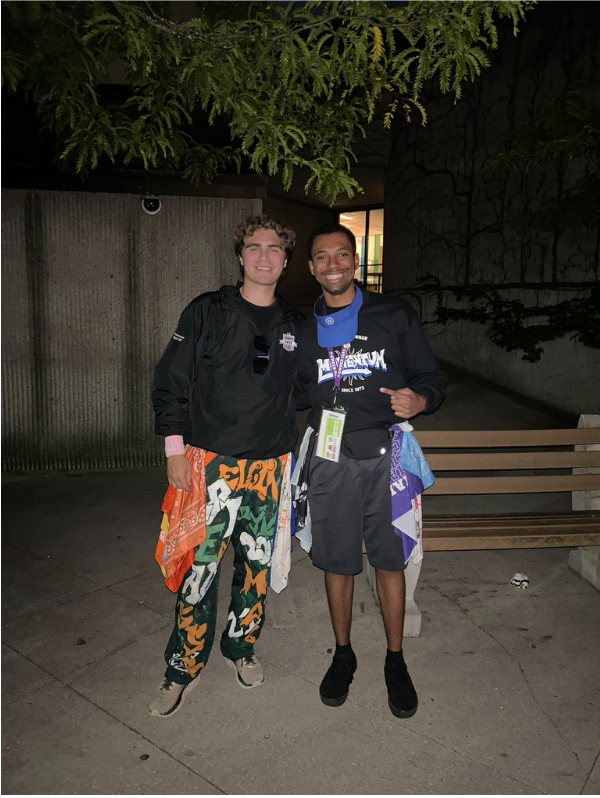The USC’s Student Financial Aid Policy Debrief: Recommendations to Address Student Financial Insecurity
- SSSC Western

- Apr 30, 2024
- 4 min read
Written by: Sima Kootar

About this Brief
Western University has numerous programs in place to support students financially and assist students with the financial burden that comes with post-secondary education. However, there is room for much needed improvement as many students continue to struggle with financial insecurity. Financial insecurity can immensely affect a student’s mental health and ability to succeed. The following brief is intended to provide an outline of the policy recommendations made by the University Students’ Council (USC) to improve student financial aid.
Scholarship & Bursaries
(Western Guarantee)
Post-secondary education should be financially accessible to all students. It is important that we recognize that students do not deserve to graduate with a high debt to pay off. The 2018-2019 exit survey showed that there are Western students graduating with approximately $100,000 in debt. It can take 20-30 years to pay this amount of debt off (Forbes). As a result, many students become financially unstable during their time at Western and this financial strain has been exacerbated with the pandemic. The USC recommends that Western establish a scholarship program that encourages academic growth from year to year. Western should also re-establish its ‘Western Access Guarantee.’ This is a bursary program in collaboration with the Ministry of Training, Colleges and Universities (MTCU) and it ensures that any student who receives OSAP funding and has “unmet financial needs” are given adequate support. Finally, the Western Provost and Vice-Provost, Academic Programs should collaborate with the USC and put forward a Policy on Student Financial Support to the Senate Committee of Academic Policy and Awards.
Financial Aid
(Services and Support)
Financial aid should be accessible and all students should be made aware of the scholarships and bursaries available. Every year, a large number of scholarships and bursaries go unclaimed. It can be difficult to access financial aid advisors, as well as general information about financial aid. The USC recommends that Western change the nature of some of their scholarships in a way that students who match the requirements of the scholarship are automatically considered for them. Also, Western should increase the number of financial aid advisors available to students to address the inaccessibility of the financial aid office. Finally, Western should communicate the unclaimed scholarships and bursaries to equity-deserving students.
Equity and Accessibility
International students, 2SLGBTQIA+ students, racialized students, and students with disabilities deserve equitable access to post-secondary education. International student tuition is much higher than that of domestic students. There are additional barriers faced in accessing funding for equity-deserving students. The USC recommends that Western increases the value of international student bursaries given their higher rates of tuition. With Western’s Strategic Plan to invest in equity-deserving groups, Western should prioritize the creation of bursaries for 2SLGBTQIA+ students, racialized students, and students with disabilities. Finally, Western should prioritize financial aid initiatives with a focus on intersectionality.
Indigenous Students Financial Aid
Canada, and therefore Western University, has a responsibility to contribute to reconciliation and decolonization. There are many additional barriers faced by Indigenous students when it comes to accessing post-secondary education. The USC recommends that Western should act more upon the Truth and Reconciliation Commission of Canada’s Call to Action number 7 by engaging more with local Indigenous communities and working to reduce the number of barriers faced by students hoping to pursue post-secondary education. Western should also act more upon the Truth and Reconciliation Commission of Canada’s Call to Action number 11 by working with the Indigenous Students Centre to increase funding for Indigenous students through merit and non-merit based initiatives.
Expected Contributions & Eligibility
Many individuals and families spend more than 30% of their income on funding post-secondary education. Government financial aid programs do not take debt into account within spousal, parental, and individual expected contributions. Co-op placements create many additional costs that are not covered under any financial assistance programs. The USC recommends that the provincial and federal government should not include spousal and parental income contributions in financial aid applications. The provincial and federal government should also modify their financial aid programs to account for the costs of co-op programs.
Provincial & Federal Funding
(OSAP & Canada Student Loans/Grants)
More needs to be done by the provincial and federal government in ensuring that post-secondary education funding is accessible to all students. Student debt is a barrier in accessing post-secondary education and employment after graduating. Students with debt often have lower net worth, fewer assets, and are less likely to have investments or savings. The USC recommends that Interest on all student loans should be permanently removed by the provincial government. The provincial and federal government should also increase the number of grants available to low and middle-income students.
Financial Aid
(Data Collection)
The Ontario Student Assistance Program (OSAP) should collect comprehensive, accessible data to inform program-related decisions. The Ministry of Colleges and Universities (MCU) does not collect and report OSAP data on the success of its recipients. Policy creation and change is made difficult with no data to work off of. The USC recommends that The Higher Education Quality Council of Ontario (HEQCO) should collect data on OSAP recipients and their post-graduate employment. The MCU and HEQCO should be more transparent with students and universities about their data collection and usage. Finally, the MCU should develop a voluntary demographic survey for OSAP applicants to determine the assistance given to equity-deserving groups.





Great policy recommendations on addressing student financial insecurity — it’s clear that financial aid reforms are essential for student success. This made me think about related challenges like student accommodation Loughborough, where affordable housing options are just as critical to reducing the overall financial strain on students.